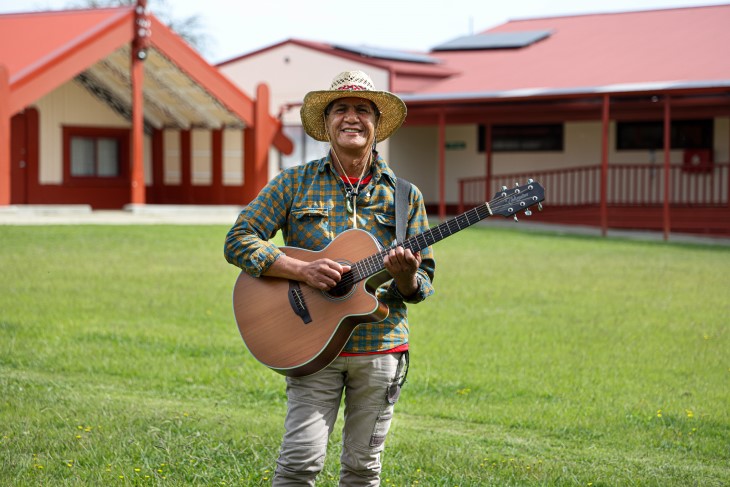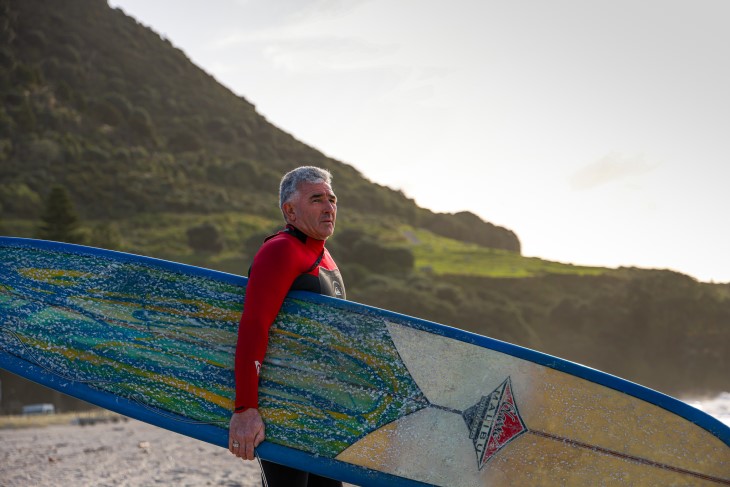Taane’s story: Getting back on his feet with Hāpai
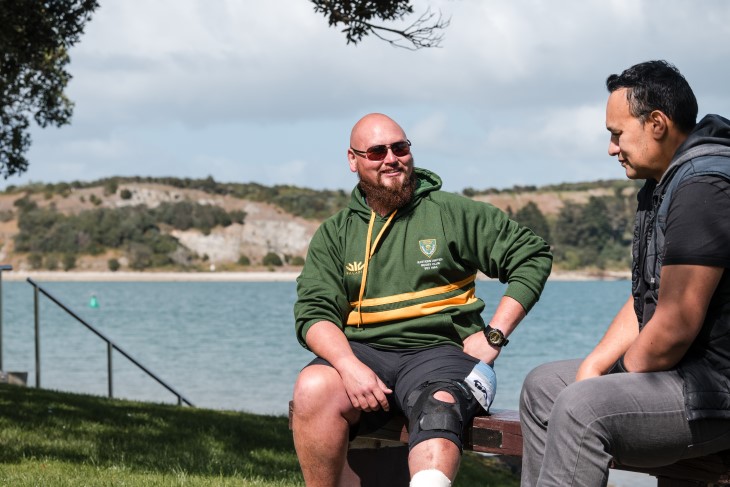
The happy-go-lucky nature of Taane Karena was tested when a serious injury put him in a dark place. But the support of our Hāpai programme, which provides care grounded in Māori values and principles, has turned his recovery around.
Feeling a sharp pain in the back of his leg, Taane Karena (Ngāti Kahu) thought his kids were roughhousing with him.
The 33-year-old from the fishing village of Mangonui in the Far North was attending a family reunion last October. He was rounding up the tamariki for dinner when he went down in a heap.
“It was a funny one,” he remembers, while lying on his couch.
“I was stepping over a hole and felt this pop in the back of my leg. I thought one of the kids had come up behind me and tackled me because we’re always playing games. But I looked around and no one was there.”
Taane was lying on the ground in immense pain. He didn’t know what he’d done but he couldn’t get up.
“The pain was definitely a 10 out of 10 and then the kids found me and went for help.”
When the swelling eased, Taane found out he’d ruptured the Achilles tendon on his left leg.
Another serious injury was the last thing he needed. He was still feeling the effects of a serious motorbike accident in 2013. In that crash, he ripped all the ligaments in both of his knees and still suffers pain.
“It’s been a long journey with injury,” Taane says.
“I couldn’t believe it when they said I’d ruptured my Achilles because I knew that meant a lot more time off work.”
To make matters worse, Taane re-injured his Achilles during his recovery which has stalled his progress.
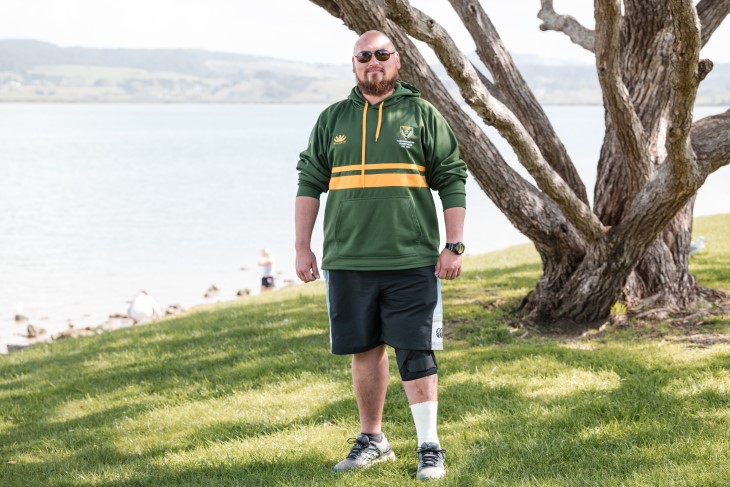
‘You go to dark places’
Taane is generally a ‘glass-half-full’ type but says it’s been hard to win the mental battle throughout his injuries. He’s an experienced yard manager for timber companies in the Northland region and not being able to work has been tough on his self-esteem.
“It’s been an incredibly frustrating period,” he says.
“Being injured and out of work for this long takes a lot of mental strain and it’s been hard. There is also a financial strain. You do go to dark places and wonder if you’ll ever live a normal life again.”
He’s also been unable to do much around the home, so his mum has stepped in to help. He misses the best parts of his life – being able to play with his kids or go hunting and fishing with his mates.
“It's impacted me massively and it sucks being injured,” he says.
“I’ve felt like a little kid having mum looking after me. I haven’t been able to do any of the stuff that makes you happy so I can’t wait to get back to my old life again.”
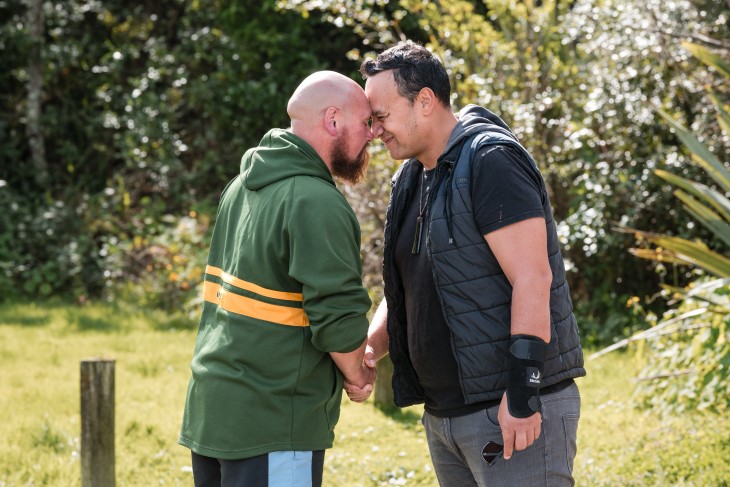
Taane Karena, left, sharing a hongi with his ACC kaihāpai (recovery partner) Lance Kilgour.
Hāpai provides hope in trying times
Taane says there was one moment in his recovery which was like a shining light of hope.
He received a call from ACC recovery partner Lance Kilgour, who asked if they could meet up for a chat and take a different approach.
“I said, ‘Oh, that’d be awesome.’ It’s a bit hard for me to drive around and I was open to any new ideas.”
That different approach Taane was introduced to was Hāpai. It’s an evolving initiative from ACC which provides kiritaki with culturally responsive support and options in their recovery, and is designed to include whānau in the recovery journey.
It’s delivered by ACC kaihāpai (recovery team members) and is grounded in tikanga Māori (Māori values and practices).
Lance discussed a return-to-work plan and set up meetings with specialists to ensure Taane was getting the right help in his recovery. He also suggested options which were based on Māori principles and te ao Māori (the Māori worldview).
“It’s actually quite overwhelming to talk about how much he’s helped me,” Taane says.
“Lance has always been so consistent. He’s never hōhā (annoyed) with me, he’s taken his time out to listen to what I’ve had to say and put my recovery first.”
Culturally responsive support with Hāpai
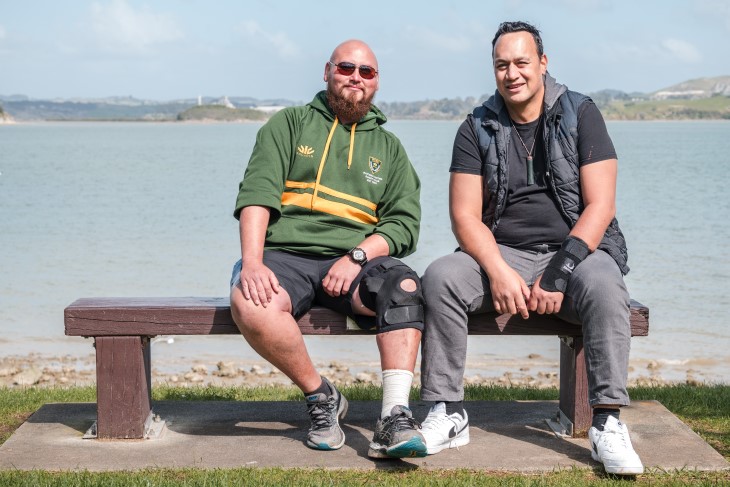
Easing the burden for Māori
Hāpai is currently available to kiritaki Māori who’ve experienced serious or complex injuries.
“Our vision for Hāpai is to improve access and experience for kiritaki Māori,” says ACC Māori Health Manager Debbie Barrett (Te Arawa, Ngāti Wāhiao, Kūki 'Āirani).
“The word hāpai means to uplift, elevate and support, which is exactly what we want to do for kiritaki Māori and their whānau.”
Our research shows Māori are more likely to experience a serious injury than non-Māori, but overall are less likely to make an injury claim.
Māori make up 16.7 per cent of the population in Aotearoa but only 12 per cent of all ACC claims.
We know there are barriers to accessing ACC care that impact whānau getting the help and support they need.
So we set up our Hāpai service in response to feedback from whānau Māori about their ACC experience and the consideration of their cultural needs.
The result is a culturally-grounded, mana-enhancing recovery support option for our Māori clients and their whānau – an adaptation of ACC’s case management system.
Two thirds of our kiritaki supported by Hāpai are male while nearly a quarter of Hāpai clients live rurally in often under-served communities where access to ACC services and supports can be hard to reach.
“Our kaihāpai are regionally-based so they can connect kanohi ki te kanohi (face-to-face) with kiritaki and their whānau,” Debbie says.
“Whether that’s at home, at the marae or at mahi (work), it’s about ensuring our kiritaki feel comfortable and supported in their healing journey.”
Taane says living in an isolated area in the Far North is a challenge. Face-to-face connection has made a real difference.
“That’s been the best thing for me,” he says.
“When you’re injured, you have plenty of time to think about things, like ‘What if this happens’ or ‘How am I going to get back to normal’.
“When Lance comes in and talks to me, it takes the mental burden off me.”
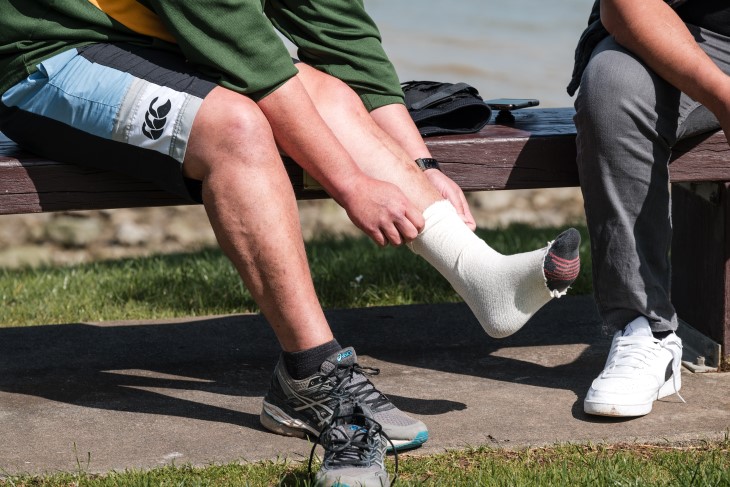
Kaupapa Māori approach boosts recovery
After growing the service from a pilot in 2021, today Hāpai has supported more than 1,200 kiritaki Māori.
Hāpai has helped 445 clients return to independence, as they no longer require intensive ongoing support from ACC.
We’ve seen an increase in the number of kiritaki Māori accessing rongoā Māori services and a small increase in other areas such as weekly compensation and psychological services.
This is contributing to us achieving our goal of mana taurite (equity) to ensure appropriate access, experience and outcomes for all New Zealanders.
Taane says it’s hugely important for him to have kaupapa Māori approaches and options that align with who he is as part of his recovery, such as Hāpai and rongoā Māori services.
“I’ve realised I have a bit of trauma following my motorbike crash and that ‘whole-of-person’ care you get with traditional Māori healing has been a big step forward.”
ACC has supported Taane with all his medical costs and weekly compensation, as well as counselling to support his recovery.
“Without that support from ACC, I’d be in a massive financial rut. I don’t know what I would’ve done without them to be honest,” he admits.
Taane is now focused on getting back to doing the things he loves.
“I can’t wait to be able to chase my kids around the backyard and get out for a hunt or a fish again, that would be an unbelievable feeling.”
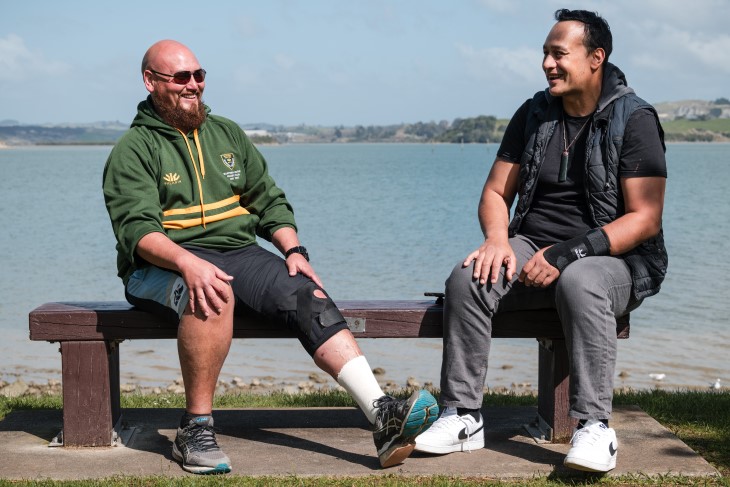
More information on Hāpai
Hāpai is an initiative providing kiritaki Māori and your whānau with options in your recovery support experience.
Our vision for Hāpai is to improve access, experience and outcomes for kiritaki Māori.
Hāpai is delivered by our kaihāpai (recovery team members) and is grounded in tikanga Māori (Māori values and practices).
This means te ao Māori principles inform the way we engage with you and your whānau, to ensure you receive support when you need it, and in ways that work for you.




